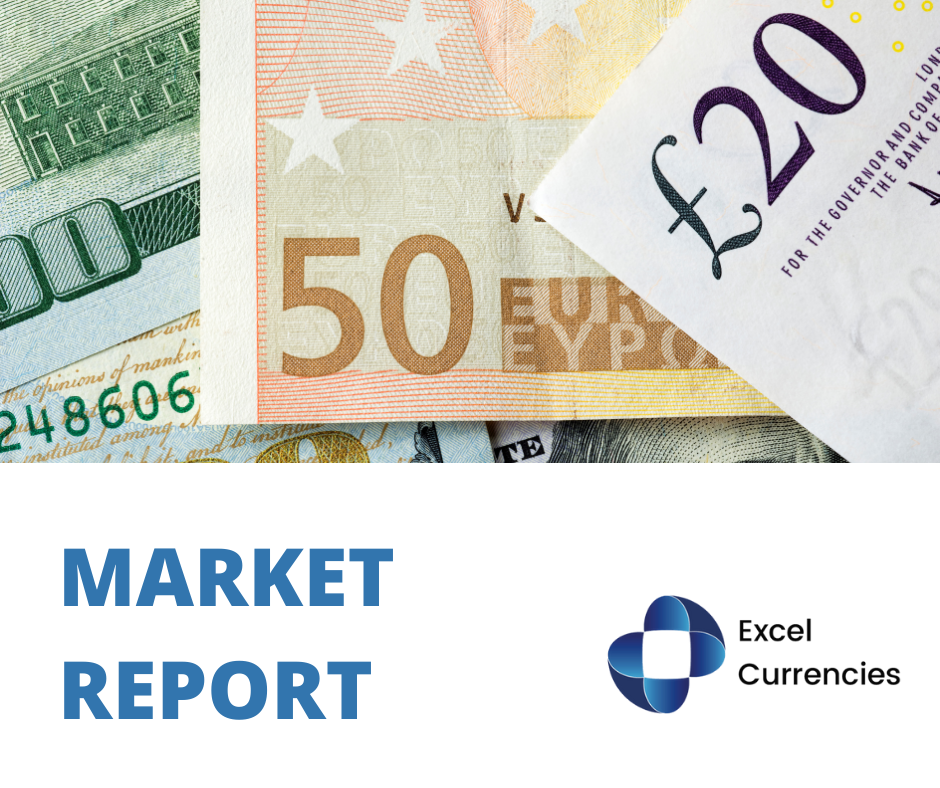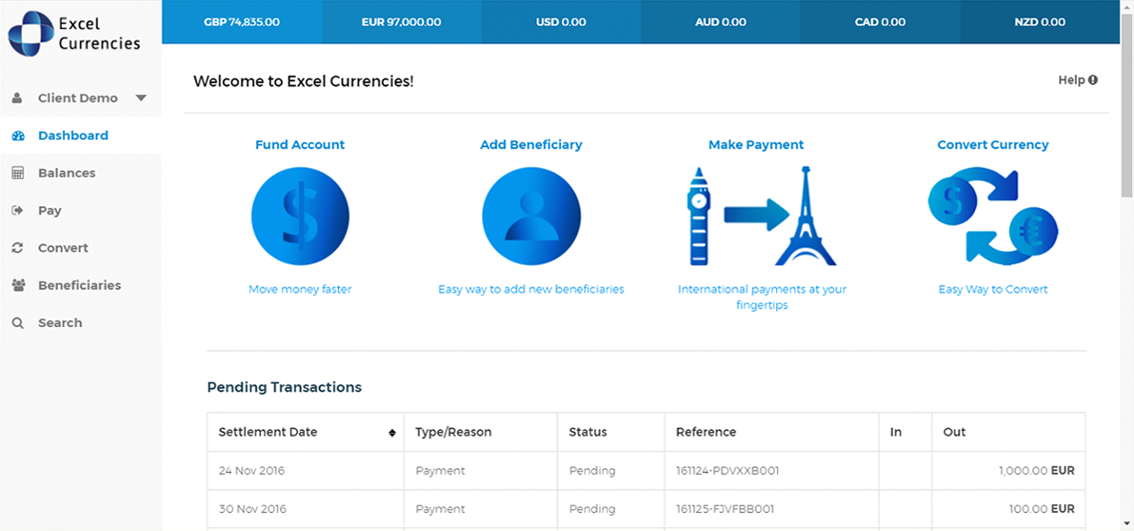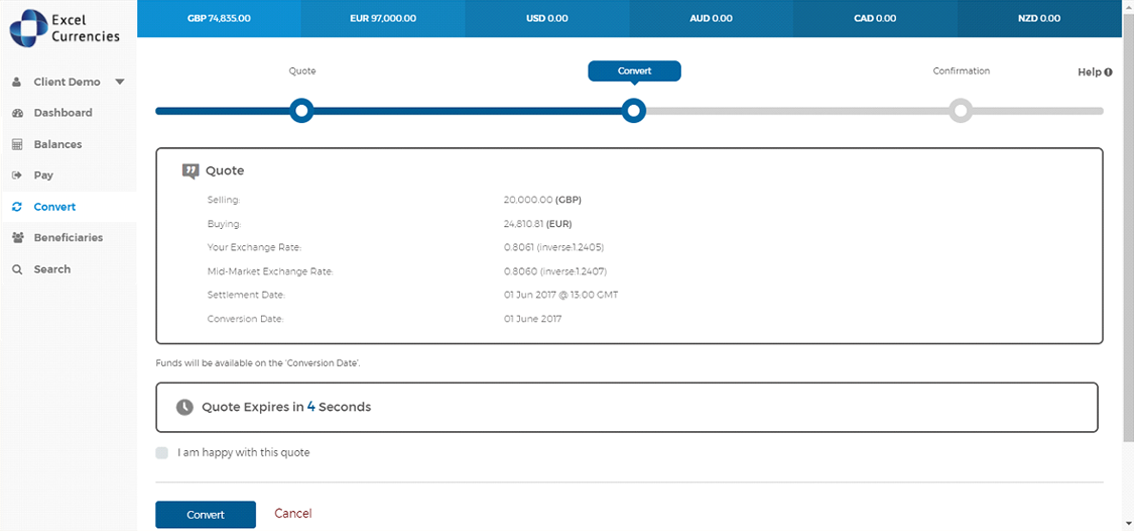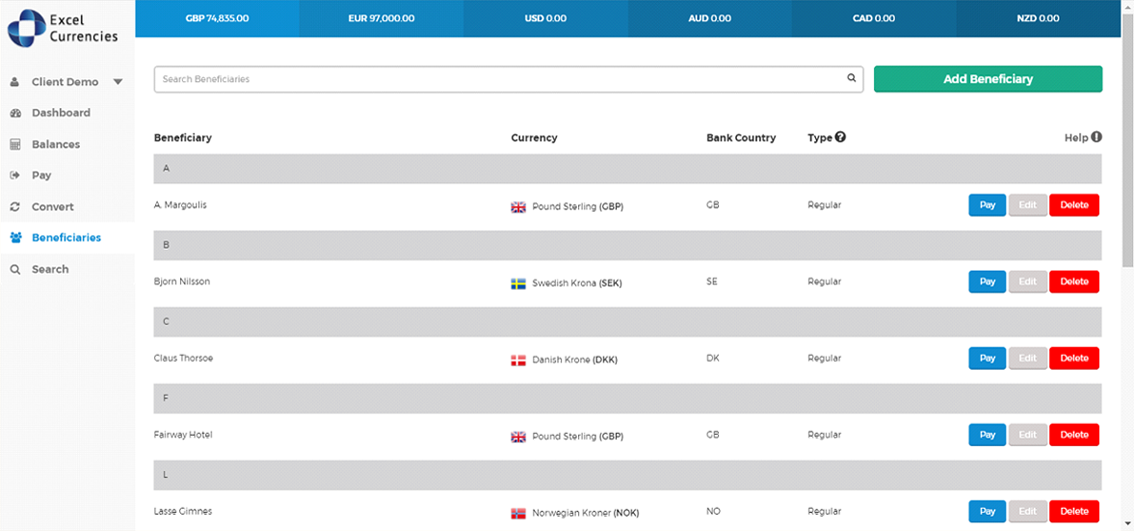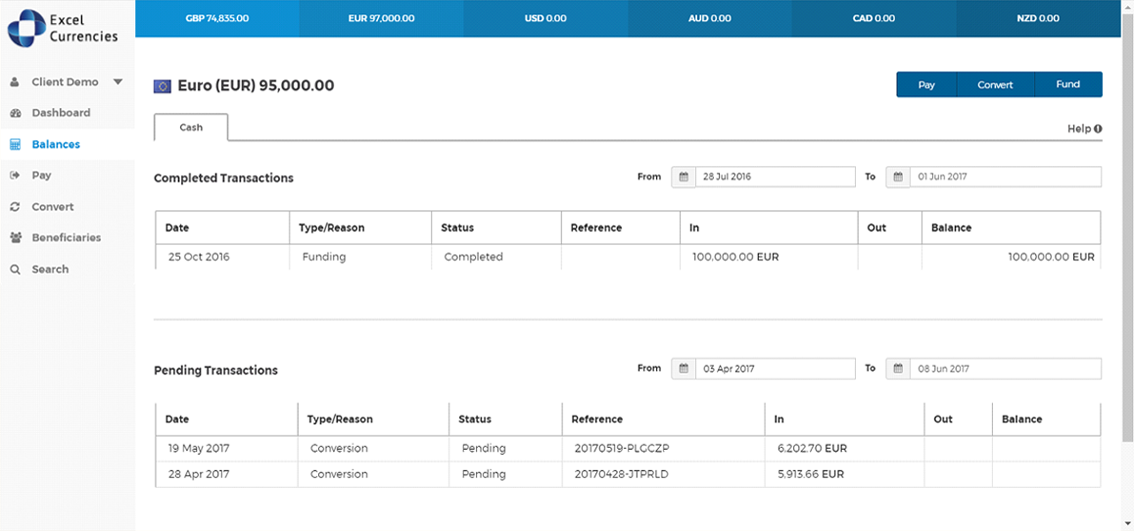|
Sterling is enjoying a fine run at the moment across the board generally. Economic and political stability has been the key (as we keep mentioning) and there is no doubt that in Q1, £ performed at a much higher level than most had forecast.
Pound v Euro has seen little change over the past month and in fact, it has shown a 50% decrease in its regular volatility range. This represents a consolidation period at the top level of its expected range and so any trades that have been booked at current prices are seen as wise decisions.
£-$ on the other hand has been on a steady path upwards, whilst experiencing its usual volatility range. There should be more to come from this pair near-term, however, in recent times when we have got to this point it hasn't materialized. This week is another 50-50 on which way GBP will move because of the lack of data available, but positivity is surrounding the currency just now and so we expect to see current ranges traded.
EUR
Investment bank Morgan Stanley has come out to maintain its view on a stronger € in the coming weeks and months, despite £ being the best performing major currency of 2023 so far. The bank have targeted the GBP-EUR rate to fall to 'crisis' levels by year-end, to a potential low of 1.07.
Their view, is that the Euro will benefit from Euro-Zone investors repatriating their capital to the region, now that the Euro-Zone debt market is offering better interest rates. An interesting theory, but will it be enough to substantially change the value of the pair?
USD
The Dollar remains under pressure from the recent banking fallout, as-well-as a recovering global economic outlook. A new headwind has today entered the market with news that OPEC have cut oil supplies that has seen oil and oil stocks surge. A 'new Arabian dawn' is being touted, but this won't manifest into the market quickly with various other things currently taking hold.
During the pandemic, a similar move was made which saw the USD gain tremendous strength in what was obviously already a turbulent time. The move has come after a drop in demand, as-well-as caution for the year ahead in terms of the global economy slowing. This is due to central banks raising interest rates to curb high inflation.
|

 Twitter
Twitter Facebook
Facebook linkedin
linkedin Google
Google